
Email marketing remains one of the most effective digital marketing channels, delivering an average ROI of $42 for every dollar spent. But what happens when businesses want to offer email marketing services without building the technology from scratch? That’s where white label email marketing comes into play.
White label email marketing allows companies to rebrand and resell existing email marketing platforms under their own name. This approach enables agencies, consultants, and software companies to expand their service offerings without the massive investment required to develop proprietary email marketing technology.
This comprehensive guide will explore everything you need to know about white label email marketing, from how it works to its benefits and potential drawbacks. Whether you’re a marketing agency looking to expand services or a business considering this solution, you’ll discover actionable insights to make informed decisions.
Understanding White Label Email Marketing
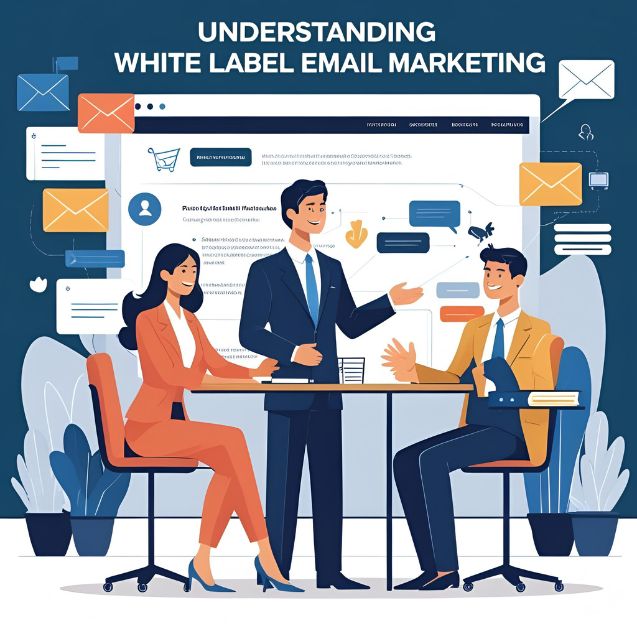
White label email marketing refers to a service model where one company develops email marketing software and allows other businesses to rebrand and sell it as their own product. The original developer remains behind the scenes while the reseller takes credit for the platform.
The concept mirrors other white label services you might encounter daily. For instance, many store-brand products are actually manufactured by well-known companies but sold under the retailer’s label. Similarly, white label email marketing platforms are developed by specialized companies but marketed by agencies, consultants, or other businesses.
This arrangement creates a win-win situation. The original developer focuses on creating and maintaining robust email marketing technology, while resellers concentrate on client relationships and marketing the service. Neither party needs to venture outside their core competencies.
The white label provider handles all technical aspects, including server maintenance, software updates, security patches, and feature development. Meanwhile, the reseller manages client acquisition, support, and billing under their own brand identity.
How White Label Email Marketing Works
The process begins when a business partners with a white label email marketing provider. The provider grants access to their platform, which the reseller can then customize with their own branding elements, including logos, color schemes, and domain names.
Clients of the reseller interact exclusively with the branded interface. They never see references to the original platform developer. From the client’s perspective, they’re using a proprietary tool developed by their service provider.
Most white label arrangements follow a revenue-sharing model. The reseller pays the original provider either a fixed monthly fee or a percentage of revenue generated from clients. Pricing structures vary significantly between providers, with some charging based on the number of subscribers or emails sent.
The technical infrastructure remains entirely managed by the original provider. This includes email deliverability, spam compliance, server maintenance, and ongoing platform development. Resellers can focus on what they do best while offering comprehensive email marketing services.
Integration capabilities allow businesses to seamlessly incorporate email marketing into their existing service portfolio. Many white label platforms offer APIs and third-party integrations that complement other marketing services.
Key Benefits of White Label Email Marketing
Rapid Market Entry
Developing email marketing software from scratch requires significant time, technical expertise, and financial resources. White label solutions allow businesses to enter the email marketing space immediately with proven, reliable technology.
Cost-Effective Expansion
Building proprietary email marketing tools can cost hundreds of thousands of dollars and take years to develop. White label partnerships require minimal upfront investment while providing access to enterprise-level functionality.
Maintained Brand Identity
Clients work exclusively within your branded environment. This strengthens client relationships and positions your business as a comprehensive marketing solution provider rather than just a middleman.
Technical Support Handled
The white label provider manages all technical aspects, from server maintenance to software updates. This eliminates the need for specialized technical staff while ensuring clients receive professional support.
Scalability Without Infrastructure Investment
As your client base grows, the white label provider handles increased server capacity and technical demands. You can scale your business without worrying about infrastructure limitations.
Focus on Core Competencies
Rather than diverting resources to software development, businesses can concentrate on client acquisition, relationship management, and strategic marketing guidance.
Common White Label Email Marketing Features
Most white label email marketing platforms include essential features that clients expect from professional email marketing tools.
Campaign Management
Comprehensive campaign creation tools allow users to design, schedule, and send email campaigns. This includes template libraries, drag-and-drop editors, and advanced segmentation capabilities.
Automation Workflows
Sophisticated automation features enable businesses to create complex email sequences based on user behavior, demographics, or custom triggers. These workflows can nurture leads and engage customers without manual intervention.
Analytics and Reporting
Detailed performance metrics help clients understand campaign effectiveness. Reports typically include open rates, click-through rates, conversion tracking, and subscriber growth analytics.
List Management
Robust contact management systems organize subscriber data, handle opt-ins and opt-outs, and maintain compliance with email marketing regulations like GDPR and CAN-SPAM.
Integration Capabilities
API access and pre-built integrations connect email marketing efforts with other business tools, including CRM systems, e-commerce platforms, and social media management tools.
Mobile Optimization
Responsive design ensures emails display correctly across all devices, while mobile-friendly interfaces allow campaign management from smartphones and tablets.
Who Should Consider White Label Email Marketing

Marketing Agencies
Agencies can expand service offerings without hiring specialized developers or investing in proprietary technology. White label solutions complement existing services like social media management, content marketing, and paid advertising.
Business Consultants
Independent consultants can offer comprehensive digital marketing solutions while maintaining focus on strategy and client relationships. Email marketing becomes another revenue stream without technical overhead.
Web Development Companies
Developers can provide ongoing marketing services after completing website projects. This creates recurring revenue opportunities and strengthens client relationships beyond one-time development contracts.
Software Companies
SaaS providers can integrate email marketing functionality into existing platforms, creating more comprehensive solutions for their users.
Franchise Organizations
Franchisors can provide branded email marketing tools to franchisees, ensuring consistent messaging while allowing local customization.
Potential Drawbacks to Consider
Limited Customization
White label solutions may not accommodate highly specific feature requirements. Businesses with unique needs might find limitations in customization options.
Dependence on Third Parties
Your business success becomes tied to the white label provider’s reliability and performance. Technical issues or service disruptions can directly impact your clients.
Ongoing Costs
Monthly fees or revenue-sharing arrangements create ongoing expenses that must be factored into pricing strategies and profit margins.
Competitive Limitations
Multiple resellers may use the same white label platform, potentially creating competition between businesses offering identical underlying technology.
Support Challenges
While technical support is handled by the provider, you’re still responsible for first-level client support and must coordinate with the white label company for complex issues.
Choosing the Right White Label Provider
Evaluate Technical Capabilities
Assess the platform’s feature set, reliability, and scalability. Look for providers with strong deliverability rates, comprehensive automation tools, and robust reporting capabilities.
Consider Pricing Structures
Compare different pricing models to understand long-term costs. Some providers charge flat monthly fees, while others use revenue sharing or per-subscriber pricing.
Review Customization Options
Ensure the platform allows sufficient branding customization to maintain your business identity. This includes custom domains, branded interfaces, and co-branded support materials.
Assess Support Quality
Evaluate the provider’s technical support responsiveness and expertise. Your clients’ experience depends on the quality of backend support.
Examine Integration Capabilities
Consider how well the platform integrates with tools your clients already use. Seamless integrations enhance the value proposition and client satisfaction.
Making White Label Email Marketing Work for Your Business
Success with white label email marketing requires strategic planning and execution. Start by clearly defining your target market and understanding their specific email marketing needs.
Develop pricing strategies that account for your costs while remaining competitive. Consider bundling email marketing with other services to create comprehensive packages that provide greater value.
Invest in training to ensure you can effectively support clients and demonstrate platform capabilities. Even though technical support is handled by the provider, you need expertise to guide clients strategically.
Create marketing materials that position email marketing as part of your comprehensive service offering. Focus on the strategic benefits rather than just technical features.
Establish clear communication channels with your white label provider to quickly resolve any issues that arise. Strong partnerships lead to better client experiences.
White label email marketing offers a compelling opportunity for businesses to expand service offerings without significant technical investment. By understanding the benefits, limitations, and success factors, you can determine whether this approach aligns with your business goals and client needs.
Meta data
Meta title
What Is White Label Email Marketing? Complete Guide
Meta description
Discover how white label email marketing works, its benefits, and whether it’s right for your business. Complete guide with tips for success.



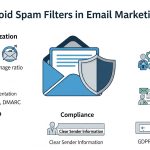











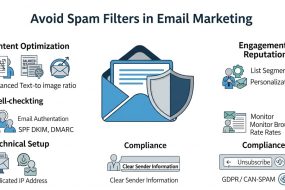
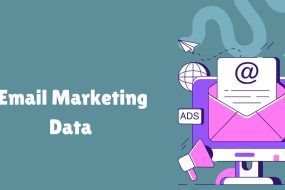
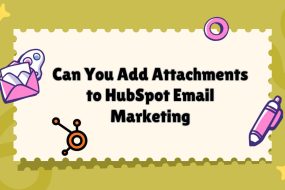
No Comments